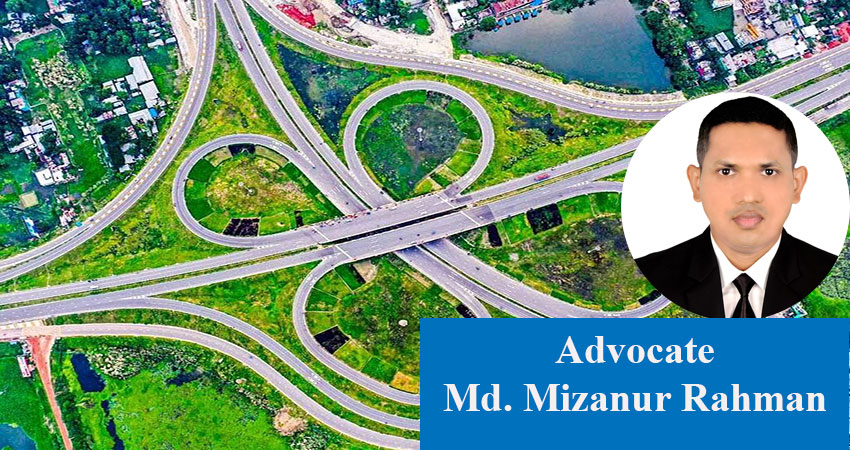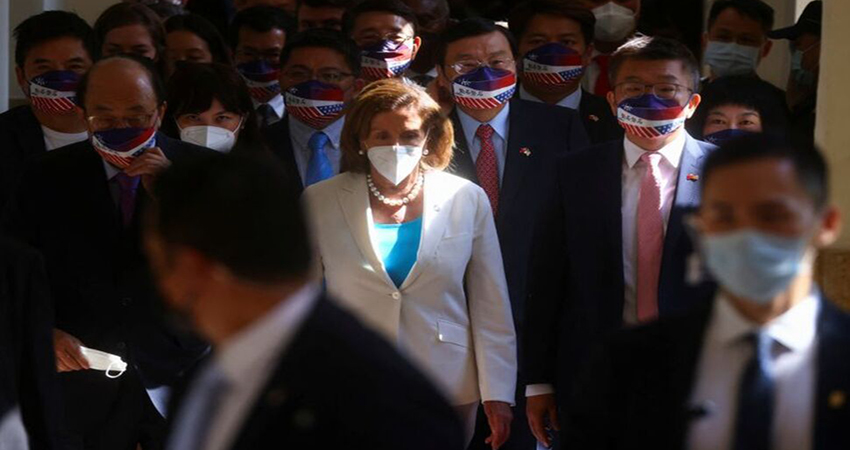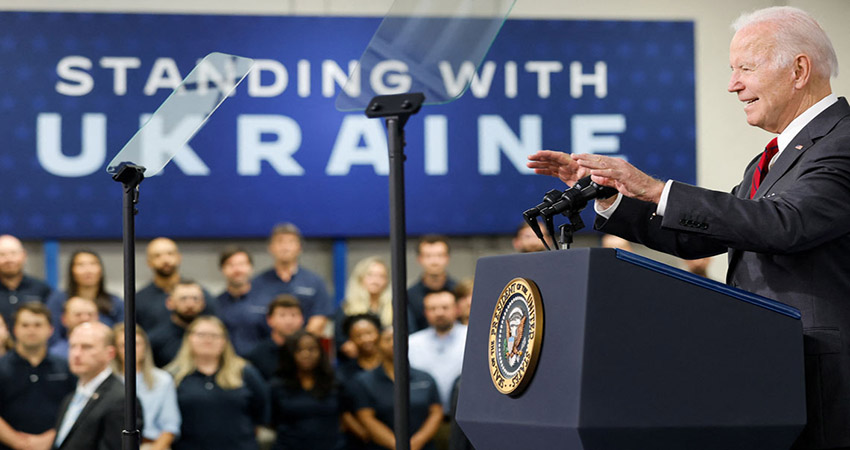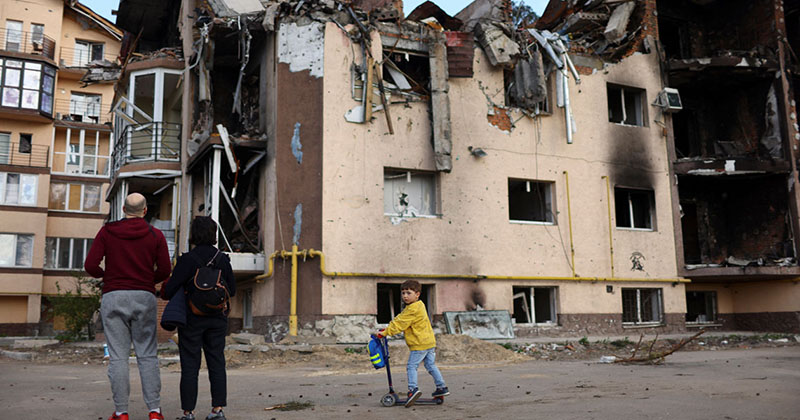Pradip Kumar Dutta :
In the year 2015,9th December has been declared by United Nations as the International Day for the Remembrance and Dignity of the victims of Genocide and the prevention of this Crime. The date was selected purposefully. On this day in 1948 the UN adopted the Convention for the prevention and punishment of Genocide. The brain behind drafting and tabling this Convention was the academician and jurist of Polish origin Raphael Lemkin. As a Polish Jew he and his family had to suffer during both the world wars and with great difficulties he could survive the Holocaust during WW2. He fled from his motherland and travelling through various countries,sometimes in disguise, finally landed in USA.
He embarked on his research and work on various aspects of human sufferings due to wars and endeavours of domination by stronger countries or entities on weaker counterparts. Hunger of power,domination and superiority brought forth atrocities on and destruction of many people,he concluded. Lemkin and his associates worked hard for years and finally succeeded in drafting the UN Genocide Convention. It was Raphael Lemkin who first coined the term Genocide. It is derived from two great different languages: Greek word genos meaning race or people and latin word caedo meaning killing. Genocide was thus defined as the intent to fully or partially destroy a people belonging to a National,Religious,Ethnical or Racial group.
The Genocide Convention was the first human rights treaty adopted by the UN General Assembly on 9 December,1948. It brought the International Community together to commitment of Never Again to atrocities. This had to happen after the world has seen untold and horrifying experiences of human suffering during the WW2.Genocide became a criminal offence and perpetrators of genocide were declared responsible for this crime and subjects of trial. The Genocide Convention became the backbone of International Criminal Law which deals with the international crimes of Genocide,War crimes,Crimes against Humanity and atrocities/aggressions of international nature. Rome statute of the International Criminal Court of 1998 also are based on the 1948 Genocide Convention. In 1948 the Convention was passed in the UN General Assembly and when in 1951 it was enforced,20 countries have already ratified it in their own assemblies. By now, more than 150 countries have signed it and the International Court of Justice reiterates that since it has been established as an international law,even the countries not signing it have to honour it.The adoption of the Genocide Convention was absolutely necessary. Because there was no such International law and consensus before WW2,the League of Nations could not prevent Holocaust(the Genocide of Jews),the Polish Genocide and many other genocidal atrocities. Within a little over two decades after the huge losses of lives and wealth in the world, we had to witness yet another massacre of larger scale. In the cover of State sovereignty genocides,war crimes and crimes against humanity were rampant before and after the WW1. The UN Genocide Convention of 1948 put a brake on indiscriminate use of State sovereignty and framed internationally acclaimed documentation to suppress, prevent and punish Genocide.
The Convention stipulated the following five acts as elements of Genocide:
a) Killing members of a national, racial, religious or ethnic group.
b) Causing serious bodily or mental trauma to members of such group.
c)Imposing living conditions intended to destroy such a group.
d)Preventing births within the group.
e) Transferring forcibly children out of such a group.
One or multiple misdeeds from the five abovementioned ones with the intent to annihilate fully or partially one of the groups as mentioned,constitutes Genocide.
International courts constituted by the UN has already brought to justice perpetrators of some of the Genocides that took place after the WW2 like the Rwandan, Cambodian and Bosnian genocides. The judgements pronounced had established precedence for organised and systematic rape during genocides as a punishable offence. Superior responsibility has also been established as a serious punishable crime in ordering genocidal actions.
Recent Rohingya genocide by the Myanmar authorities had attracted the attention of the world. UN and International Court of Justice are drawing up procedures against the Myanmar military government to resolve the issue.
Unfortunately many Genocides after WW2 have so far been ignored by the world. Many African countries have faced severe genocidal atrocities from their colonial masters while fighting for freedom from their colonial chains.
Perhaps the most gruesome and the biggest Genocide after WW2 was the 1971 Genocide of Bengali nation as a whole and it’s Hindu minorities in particular. The Genocide was perpetrated by Pakistan's armed forces,their Bihari allies and some Bengali collaborators to suppress and destroy Bengali nationalistic movement for democracy,equality and freedom from exploitation and discrimination.The Genocide started with Pak army's blitzkrieg strategy of Operation Searchlight that they launched on the late evening of 25 March 1971. Bengalis led by Awami League supremo Bangabandhu Sheikh Mujibur Rahman reiterated by declaring Independence of Bangladesh in the early hours of 26 March. Thence began the great War of Liberation of Bangladesh. Few thousands of Bengali Police, Ansar, Border Guards and Army who could desert the Pakistanis and dared to fight for the freedom of their motherland formed the core of the Mukti Bahini, the Liberation forces. They were joined by thousands of freedom loving enthusiasts from educational institutions, factory workers, peasants and youth from all walks of life. They did not have any sophisticated weapons. Nor did they have military training(barring very few Pak army Bengalis who joined the Liberation forces). Equipped with strong feeling of patriotism and having some support from neighbouring India they waged a protracted war against the well trained and heavily equipped Pakistanis. The Pak authorities carried out a scorch earth policy. The Pakistani policy makers and army commanders are on record ordering killings,massacre,rape and destruction of Bengalis. They perceived that Bengalis were of inferior race and being non martial,will be intimidated easily by force. Awami Leaguers,Hindus, Bengali Students,Intelligentsia and Youth were their targets. Indiscriminate military and paramilitary actions were planned by Pakistani military top brass at the instance of the then Pak government to destroy the spirits of the fighting Nation by large scale atrocities. Their Genocidal activities resulted in approximately three million deaths, two to four hundred thousand women being violated physically(some even as sex slaves),ten million destitute Bengalis forced to flee to India losing all worldly possessions ending up in refugee camps. Further,more than that number were internally displaced moving from one place to another to save life and honour. Businesses, living quarters and infrastructure was destroyed beyond imagination.
This huge massacre of hatred towards the Bengali Nation which is a Genocide by all counts has so far been overlooked by the international community. During the henious and barbaric Pakistani armed actions the US and Chinese authorities were siding with Pakistan as it was brokering a cooperation deal between the two powers(China and US).This was a much sought for development for US during those cold war days. The UN was also playing a rather passive role working for cease fire and relief operations. No move was seen to condemn and stop the ongoing Genocide. Bangladesh Provisional Government recieved all out support from India and her charismatic leader Indira Gandhi. India,in turn,had the blessings of USSR and the socialist block of countries,save China and Albania.
Since independence Bangladesh had to struggle for two years to have a seat in the UN which was deliberately being blocked by countries sympathetic to Pakistan. After Bangladesh became a member of UN,the world body should have worked on the recognition of the Genocide perpetrated on one of it’s members. The Genocide was(and still is) well documented in international media( Time,New York Times,Tass,Sunday Times,The Guardian,etc.),diplomatic correspondences(Blood Telegrams,Senetor Kennedy's report to the US lawmakers,etc.) and declassified files of various countries lying in archives. Unfortunately, no move was seen or felt towards this much needed recognition.
In the recent years though,we see some rays of light at the end of the tunnel. Many patriotic Bangladeshi organisations are constantly raising their voice to bring forth the Recognition of 1971 Genocide. Bangladeshi diaspora community are also active in this regard. Bangladesh government has declared 25 March as National Genocide Day. Three internationally reputed organisations working on prevention of Genocide worldwide,have already issued statements recognising Bangladesh Genocide. A resolution has been tabled in US house of representatives demanding recognition of the 1971 Genocide. Endeavours are afoot to raise the issue with UNHRC and other countries. Awareness building efforts to remind the younger generation of the world and specially Bangladesh about this almost forgotten atrocious Genocide is going on.
It is expected that UN and all judicious countries of the world would appreciate the importance of this move. By recognising 1971 Genocide in Bangladesh a much needed closure of the sore in the hearts of Bangladeshi Genocide victims can be achieved. This will open the door for Pakistan to formally apologise for the Genocide,the perpetrators of the Genocide may be brought to justice and proper reparations for the Genocide victims may be negotiated. Pakistan too needs a closure to their painful sore issue of 1971 which they refer to as Fall of Dhaka. Genocide denial is a crime as well. The sooner the world come out of it,the better. The discussed Genocide recognition will be in full conformity with the 1948 Genocide Convention and will fulfil the commitment of Never again.
The above analysis goes for all unrecognised Genocides of the world in the history of mankind.



















